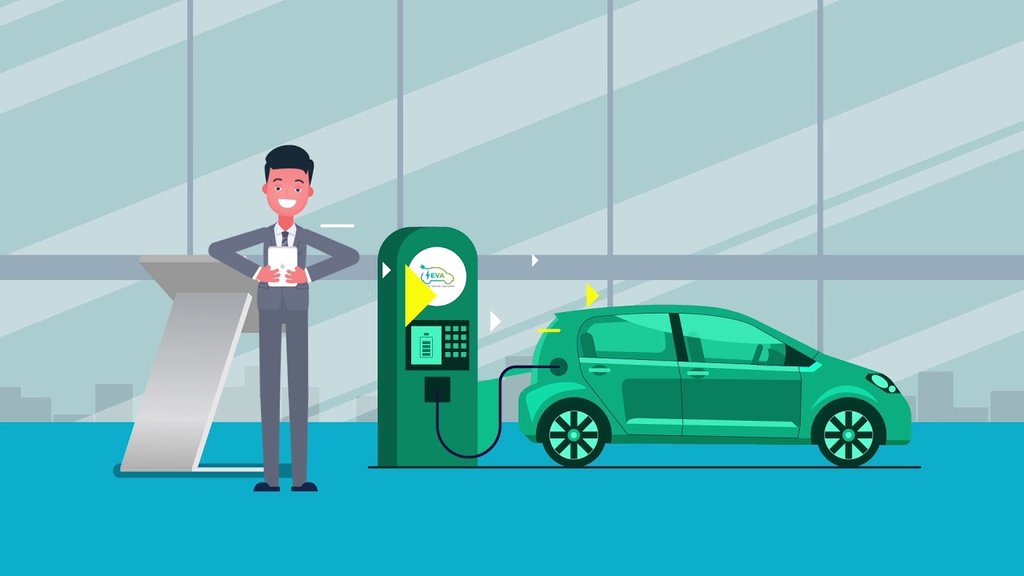WHAT COMES NEXT FOR THE ROAD TO ZERO?
EV acceleration in automotive retail
Are manufacturers and dealers ready to go electric?
The EV opportunity
According to Euractiv, EV registrations were up by +57.4% across Europe in the first quarter of 2020. However, this is still just 4.3% of total registrations and takes place across a backdrop of showroom closures due to COVID-19 (Euractiv with Reuters, 2020). With countless unsold petrol and diesel vehicles yet to make their way through the distribution channels, and a pre-existing supply constraint on electric models, the likelihood is dealers still have time before they will see major change on the forecourts.
However, with manufacturers required to meet tough emissions reduction targets by 2021, there is a strong imperative to get new electric vehicles off the production line and into customers’ hands. There are now more than 80 plug-in hybrid and full electric models on the market in the UK, with more on the horizon. However, while accounting for one in six car models on sale, SMMT VRIS data suggests they make up just one in 13 vehicles currently purchased (SMMT, 2020).
Several dealers, when asked in a recent sentiment survey for Cox Automotive, expressed their view that the market wasn’t ready, citing the high cost of EV, perceived lack of charging infrastructure, perceived issues with range, and time taken to charge. This contrasted with peers, who were more optimistic and positive about vehicles on the market.
"Almost three quarters (74%) of dealers don’t feel OEMs are sufficiently supporting their dealer networks in terms of EV investment and infrastructure implementation."
Cox Automotive Dealer Sentiment Survey
Dealer training and forecourt infrastructure
In a recent Cox Automotive dealer sentiment survey, just a quarter (26%) of respondents felt the OEMs were sufficiently supporting the dealer network in EV investment and infrastructure implementation. Almost nine in 10 dealers (88%) did not feel dealers were sufficiently supported by central bodies, such as government or council.
Almost a third (30%) of respondents felt OEMs were unprepared for accelerated growth of electric vehicles in the UK, while two fifths (39%) said the same about dealers. While this means that more than half are positive about preparedness, there is still a long way to go to meet ambitious EV targets.
In the NFDA Electric Vehicle Dealer Attitude Survey (NFDA, 2020), many retailers were optimistic about their manufacturers proposed EV product range, which will help meet growing consumer demand in the short and medium term. However, the report also highlights it is important retailers and manufacturers work together on perceived and actual supply constraints as the sector continues to respond to COVID-induced shutdowns.
What is EVA?
Click to see video and read more
Review the NFDA EV DAS May 2020 (opens as PDF).
Review the NFDA DAS Summer 2020 (opens as PDF).
What is EVA?
The Electric Vehicle Approved (EVA) accreditation scheme has been developed by the National Franchised Dealers Association (NFDA) to promote industry standards for the benefit of the consumer.
EVA is a set of standards covering all areas of automotive retail (retail, wholesale, aftersales and bodyshops) designed to recognise businesses’ excellence in the electric vehicle sector. In this way, the EVA badge of approval enables consumers to immediately identify the businesses at the forefront of electric vehicle retail.
EVA is endorsed and co-sponsored by the Government’s Office for Low Emission Vehicles (OLEV) and backed by the Energy Saving Trust (EST).
It is the only scheme which certifies the efforts retailers are making in the EV sector to meet the ever-changing consumer demand. The EVA badge is awarded to individual sites which are rigorously and independently audited by EST and found to meet EVA’s standards. With the transition to EVs being confusing and daunting, businesses who meet the EVA standards are able to give motorists confidence in their purchases.
If a business has the EVA badge of approval displayed, you can trust they will be able to assist you with EVs and give you the highest levels of service and knowledge (EVA, 2020).
What is EVA
Video: EVA
The Electric Vehicle Approved (EVA) accreditation scheme has been developed by the National Franchised Dealers Association (NFDA) to promote industry standards for the benefit of the consumer.
EVA is a set of standards covering all areas of automotive retail (retail, wholesale, aftersales and bodyshops) designed to recognise businesses’ excellence in the electric vehicle sector. In this way, the EVA badge of approval enables consumers to immediately identify the businesses at the forefront of electric vehicle retail.
EVA is endorsed and co-sponsored by the Government’s Office for Low Emission Vehicles (OLEV) and backed by the Energy Saving Trust (EST).
It is the only scheme which certifies the efforts retailers are making in the EV sector to meet growing consumer demand. The EVA badge is awarded to individual sites which are rigorously and independently audited by EST and found to meet EVA’s standards. With the transition to EVs being confusing and daunting, businesses who meet the EVA standards can give motorists confidence in their purchases.
“If a business has the EVA badge of approval displayed, you can trust they will be able to assist you with EVs and give you the highest levels of service and knowledge” (EVA, 2020).
"Electric vehicles are quickly becoming less of a novelty, and more of a valid option for the mainstream. It is important, therefore, that OEMs and retailers manage to get the processes right to support consumer uptake."
Owen Edwards, Associate Director, Grant Thornton
Read our overview
The Outlook
